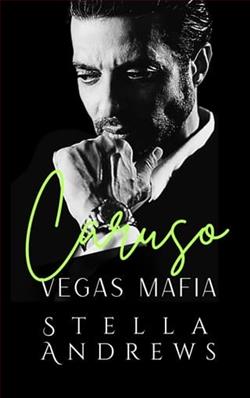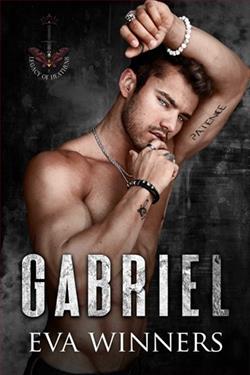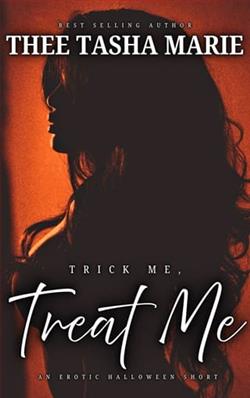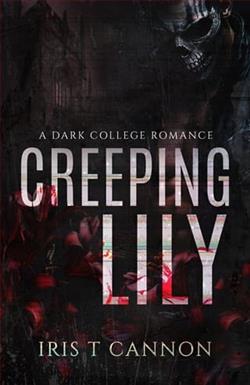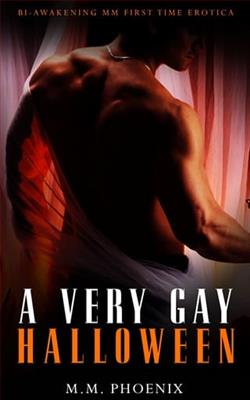Page 1 of The Heartbreak Hotel
One
It happens past midnight, ina fluorescent-lit room. I’m shaky with adrenaline and not a little bit sweaty. I’m having trouble hearing.
“Louisa,” Nate says, an edge to his voice like he’s repeating himself. “What did you honestly expect?”
Not this,honestly. Not Nate, who’s only ever called me Lou, pulling outLouisalike a weapon. Certainly not the mottled bruise along the sweat-ringed neckline of his T-shirt, evidence of someone else’s mouth.
“We’ve been so scared to call this what it is, but it’s actually obvious, right?” He keeps talking, the end of every phrase turned up like a question he expects me to agree with.
I let his voice haze out, become wordless as I watch his lips move: the freckle just off-center of his Cupid’s bow, the thin white scar from his near-feral childhood cat. He raises a hand to scrape his fingers through his hair, fidgety, then tugs at the leather bracelet slung around his left wrist. I made it when I was twenty-three and briefly consumed by handicraft.
Bad timing, I think he says.Less than ideal.He starts fiddling with things on his dressing room desk: a haphazard stack of picks, a tin of cinnamon breath mints. The set list is taped to the mirror,Purple Girl (Acoustic)highlighted yellow. He opened with it tonight, not making eye contact with me where I sat in the VIP section, and for once I didn’t sing along.
“Say something,” I finally make out. A demand, halfway petulant, as Nate turns to face me. He’s always been this way: defensive when he’s wrong, made accusatory by his embarrassment. “You owe me a response, here, at least.”
“Ioweyou?” My voice surprises me, like this is a scene I’ve been watching from a distance and I’m disoriented to hear myself in it. Someone whoops from the hallway—Kenji, maybe. Nate’s drummer. Everyone else is packing up to go home, or go out. But I have the paralyzing feeling that I’ll never exist outside this moment again. “I don’t think so.”
“No?” Nate tips closer to me, and I bite the insides of my cheeks so hard I taste iron. “After six years, you don’t have a single thing to say?”
Six years.Sixyears. Sixyears.
I do have one thing to say. When I tilt my chin upward, Nate tracks the movement like a sniper.
“Don’t think for even half a second that you’re keeping the house.”
He blinks, surprised. It’s a victory, however small, to shock him.
And it’s what I’m thinking of, as Nate Payne—my first love, my first everything—dumps me backstage at his own concert. Not the humiliation of being cheated on right under my nose.Not the fallout when the press learns that Louisa Walsh—Nate’spurple girl—is out of the picture. Not even the anticipatory shame of telling my mother, my sister.
It’s this, simple and salient:
I cannot lose that goddamn house.
Two
Three hours earlier
I never get floor seatsanymore. It used to be a physical thing, watching Nate play: the press of bodies against mine, the bass vibrating up through my sneakers, the guardrail crowded into my spleen as I tipped over it to get closer to him. Now his tour manager, Roger, always books me into the VIP section. Tonight it’s stage left, separated from the pit by a railing and a smattering of security guards in yellow polo shirts. Roger says it’s to keep me safe, but I’ve always had the distinct suspicion it’s to keep me out of the way.
Kenji’s waifish girlfriend sits next to me, white sneakers propped on the rail, phone glowing in her hands. She doesn’t look up, even when they take the stage. I think her name is Florence—though it could be Frances, or Frieda. Kenji’s girlfriends are hard to keep track of; they come and go, each one more beautiful than the last, sort of incomprehensible to me. When I met Kenji he was a greasy-haired nineteen-year-old witha “hard-line moral stance” against deodorant and a grade point average so precarious it could only be salvaged by a string of expensive tutors. The only thing he cared about was drums, and—sometimes—Nate.
Onstage, Nate waits for the screaming crowd to quiet. “Hellooo, Denver!” he shouts. A woman in the very front row, once my place, shrieks so loudly in response I see a vein throb in her neck. Beside me, Florence/Frances/Frieda is shopping for face serum.
“We’re Say It Now,” Nate says, his lips brushing the mic. “And it’s a dream to be in our hometown, singing our songs.” Kenji hammers out a drum riff that sounds like the train jingle at the Denver airport, and a laugh ripples through the stadium. “If you know the words to this one, sing along for us, all right?”
He plucks out the opening chords of “Purple Girl” and suddenly I’m twenty again, writing an essay in my Boulder dorm room, Nate cross-legged on my bed with his guitar. I close my eyes and think of us like that: children. I loved him like a fever, with an intensity that left me sleepless. Before Abe and Mateo joined the band, before “Purple Girl” took off, before the record deal or the tours or any of it at all—just Nate Payne, the first and only boy I ever loved, writing me a song.
“But I’d give it all up,” Nate sings, “these purple mountains, the alpenglow…” He steps back from the mic and smiles into the stadium, waving his hand to give them the stage. And they step up, twenty thousand voices, to finish the verse: “…for my purple girl.”
For years Nate sang those words right to me, no matter how big the crowd. His eyes on mine and the time collapsing between us, making us college kids again. He doesn’t look for me,now, and the truth is the song isn’t mine anymore. We haven’t been those kids in a long, long time. Nate called me purple because he said I was like a bruise: hurt beneath the surface, carrying the remnant of something painful.You try to hide it, he said.But it’s right there under your thick skin.Nate could be poetic like that—around his huge laugh and his scrappiness. There was something tender inside of him.
Last fall Nate posted an acoustic version of “Purple Girl” that went viral overnight, eleven million views by morning. He recorded the video in the attic office at the house, sitting in my desk chair with afternoon light coming in from the garden behind him. The song was five years old, by then. It had always been one of their most popular—but not like this.
It’s the version he sings tonight, the one that catapulted Say It Now to the level of fame that’s had them on tour since winter. I haven’t seen Nate in months. When the song hit the Billboard charts and everything changed, his story did, too:Lou’s a kaleidoscope, he told the press.Full of every surprising color—purple most of all. It was happier that way, if less true. And I couldn’t quite blame him: we haven’t been those people in years. It’s been a long time since I’ve been the girl he wrote the song about.
My phone buzzes, and I pull it out of my pocket. My sister, Goldie. The reply to a text I sent hours ago.What are you waiting for, though? Can’t you just get a date on the books for your licensing exam?
My throat gives an involuntary grumble, a strangled noise that makes Frieda(?) glance over at me. I stuff my phone back into my pocket and feel it vibrate again. I try to focus on the music, but I can imagine what else Goldie’s saying:You’re wasting time…. You can’t put off your career forever…. Twenty-sixis too old not to have a 401(k).Goldie was nine when I was born, and when we were kids I called her Vice Mom, like a vice principal but worse. She’s been on my case since I was an infant.











